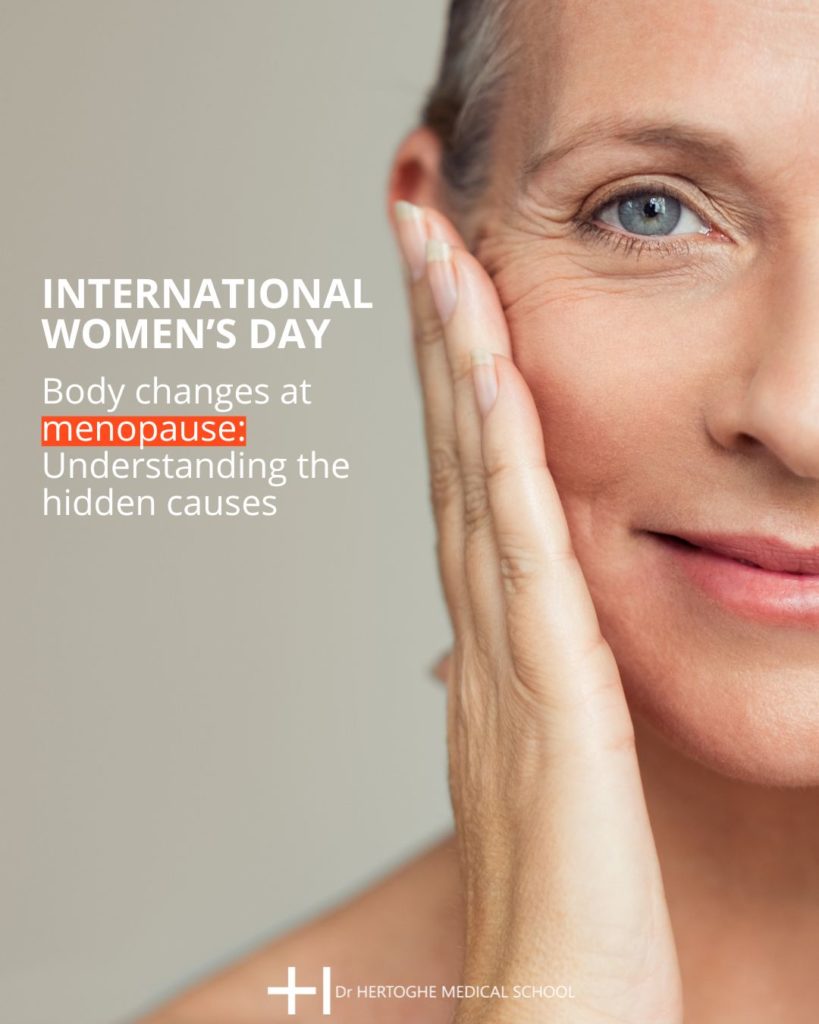Body Changes at Menopause: Understanding the Hidden Causes

Menopause brings about significant changes in the body, but it’s not just about aging — it’s your body’s way of adapting to hormonal shifts that require attention and care. As women enter menopause, two essential hormones naturally decline: estrogens and progesterone. These hormones are key players in supporting metabolism, energy levels, and overall body balance. However, there is another often unnoticed factor that plays a role in these changes: a subtle slowdown of the thyroid function, often referred to as subclinical hypothyroidism. This mild thyroid imbalance can have a quiet impact on energy levels, the speed of metabolism, and weight management. It’s important to recognize that your body isn’t failing; it’s simply asking for support.
A common concern during menopause is weight gain, and one hidden cause of this is insulin resistance, which is often linked to excess sugar intake. The brain requires sugar to function, and this need can trigger intense cravings, making it challenging to manage weight. Supporting insulin sensitivity with supplements like chromium, berberine, or cinnamon can help break the cycle of sugar dependency and promote fat burning. Additionally, key hormones like thyroid hormones, testosterone, estrogens, and progesterone are essential for regulating metabolism and appetite, which is why maintaining hormonal balance is crucial for sustainable weight control.
Weight gain during menopause is one of the most common yet often overlooked struggles. Managing it requires more than simply eating less or exercising more. A comprehensive approach should focus on restoring hormonal balance, particularly with estrogens and progesterone, supporting thyroid function, and regulating insulin sensitivity to reduce cravings and stimulate fat burning. Stress management is also critical, as high stress levels can contribute to abdominal fat storage. Nutritional support, including chromium or 5-HTP, can help curb emotional eating and improve overall weight management.
The empowering truth is that with the right support, women can thrive through menopause. Post-menopausal treatments should always be personalized to each woman’s specific needs, considering her medical history and potential contraindications. In many cases, therapies involving estrogen and progesterone can help alleviate symptoms such as hot flashes, mood changes, and osteoporosis. Regular gynecological check-ups, consultations with an endocrinologist, and breast screenings are essential for ensuring safe and effective care throughout this transition.
Menopause is not the end of vitality; it marks the beginning of a new balance. Your body is evolving, and with the right knowledge and support, you can embrace these changes with confidence. This Women’s Day, celebrate your journey, because when a woman feels good in her body, she radiates strength in every aspect of her life.

